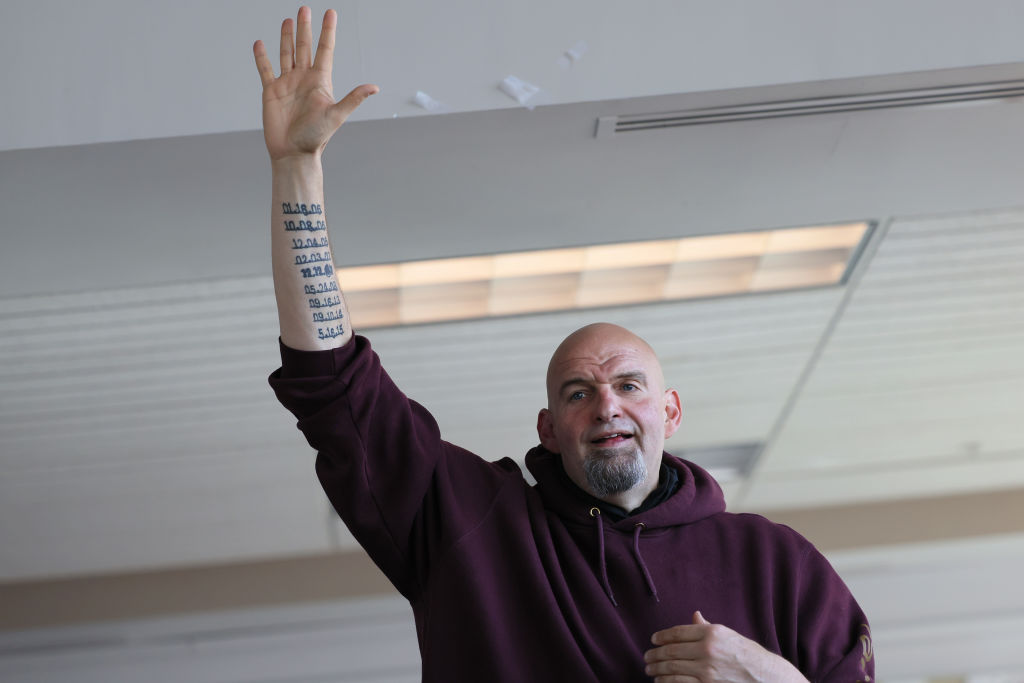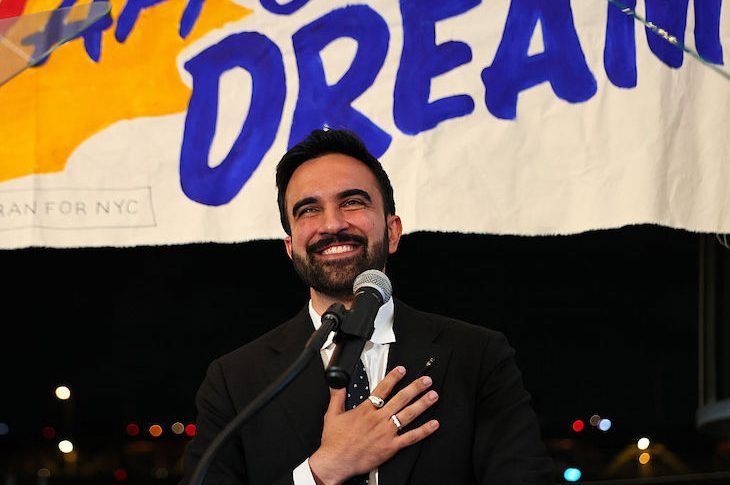Were the recent primaries in Pennsylvania and Oregon vindicating victories for radical progressives — or merely the ominous first ripples of an incoming November red wave?
Like almost everything nowadays, it depends on who you ask.
Unlike the Republican race between Dave McCormick and Dr. Oz, the Democratic Senate primary was not a nail-biter: Lieutenant Governor John Fetterman handily beat Representative Conor Lamb.
Fetterman, who billed himself as a “Democrat with a backbone,” endorsed Bernie Sanders for president in 2016. His stances on certain issues, including his defense of fracking, do not check off all of the perfect progressive boxes. But when contrasted with the cookie-cutter moderate Lamb, there’s no doubt that Fetterman’s win is a relative victory for the “Squad” wing of the party.
Lamb shouldn’t feel too bad about his shellacking though. There are plenty of middle-of-the-road Democrats who will likely be joining him in the loser’s circle.
Another upset occurred in the Keystone State’s Twelfth Congressional District, in the race between State Representative Summer Lee and attorney Steve Irwin. On Thursday Lee, who will be inducted into the Squad if she wins the general election in November, claimed victory over her more moderate opponent.
In Oregon, incumbent Representative Kurt Schrader is likely to lose his primary to far-left challenger Jamie McLeod-Skinner. Schrader, a seven-term Blue Dog Coalition member, was endorsed by President Joe Biden. Considering Schrader’s past opposition to Biden’s agenda (including his work to decouple the bipartisan infrastructure bill from the Build Back Better Act) the president’s endorsement says less about Team Biden’s interest in Schrader winning and more about their interest in McLeod-Skinner losing.
The Biden administration’s support for centrist candidates makes perfect sense. Biden had two competitive advantages in 2020: he was not Donald Trump, and he sold himself as a work-with-both-sides, old-school Democrat. The election of the gaffe-prone ice-cream-slurping grandpa was not a mandate for far-left policies and pipe dreams.
Not to mention the fact that the Democrats have received more than one warning (including an election autopsy commissioned by three prominent Democratic groups) detailing how far-left rhetoric and radical ideas like defunding the police turned off voters in 2020.
The latest polls, in fact, suggest that Biden is even less popular among Hispanics than he is among whites. So much for the demography-is-destiny trope.
Despite the grim polls, in several primary races this week the Democratic electorate made it clear that they are not abandoning the progressive ship — even if moderate Democratic voters are worried that the ship might be headed toward the biggest midterm electoral iceberg ever.
The Democratic base includes plenty of voters that want Biden to deliver on his pie-in-the-sky agenda. They are frustrated about the promises that their Trojan-horse-candidate has failed to deliver on. Biden and other establishments Dems thought that the radical ideology pushed by progressives like Alexandria Ocasio-Cortez and Ilhan Omar was just a phase. It was temporary — like inflation. Nancy Pelosi once said that the progressive wing of the Democratic party is “like five people.” Three years later, it’s clear that Pelosi underestimated the appetite for those candidates’ pet causes.
When bashing the GOP, Biden likes to tell audiences that “this isn’t your father’s Republican Party.” Based off this week’s primaries, Biden should ask whether he’s at the head of “your father’s Democratic Party.” Outspoken progressives (is there any other kind?) wasted no time celebrating their historic primary wins and claiming vindication. But while they count their chickens, Republicans are trying to make in-roads with the voters who feel left behind by the Democrats. Those progressives should proceed with caution: winning a primary is hardly the time to take a victory lap. After all, the race is just getting started.
Left-leaning Democrats don’t like congressmen like Conor Lamb or Kurt Schrader for the same reason they don’t like senators like Joe Manchin or Kyrsten Sinema: they don’t consider them Democrats at all. The party’s leftward drift has created a dynamic in which the more acceptable candidates are the ones who support each extreme initiative on the woke wish list. Better to lose with a radical than win with an obstructionist who won’t adhere to the party line. To win a Democratic primary, a candidate must support everything from universal healthcare to student loan debt cancellation to Joe’s Build Back Better agenda (to name a few things).
Perhaps the centrist Democrats will hold their noses and support the party’s progressive picks. Maybe they’ll decide that any option is better than voting for a Republican, excuse me, Ultra MAGA Republican.
But if that’s not the case, then liberals may come to regret their primary purity tests. When it comes to winning elections, party members should be picking candidates that they not only wish would win but also think could win.

























